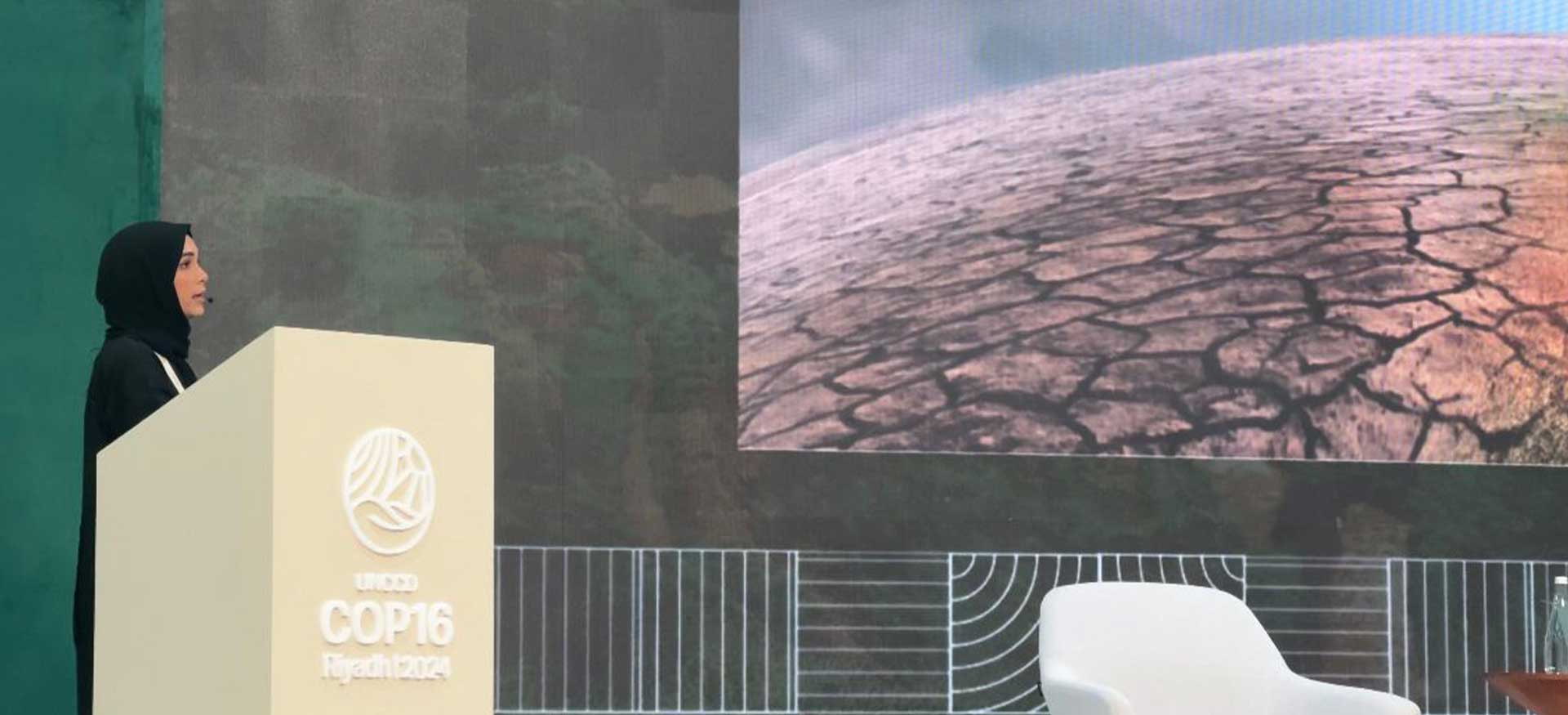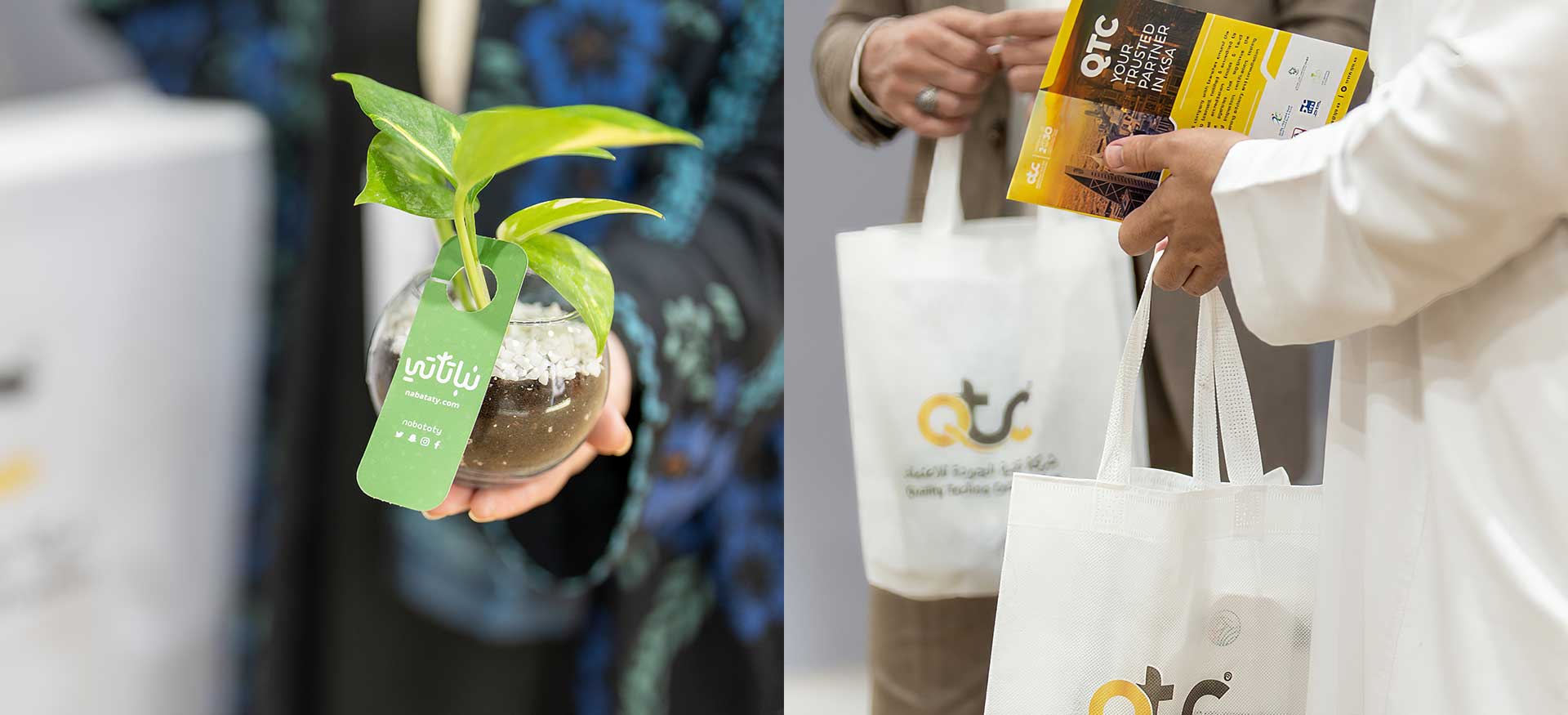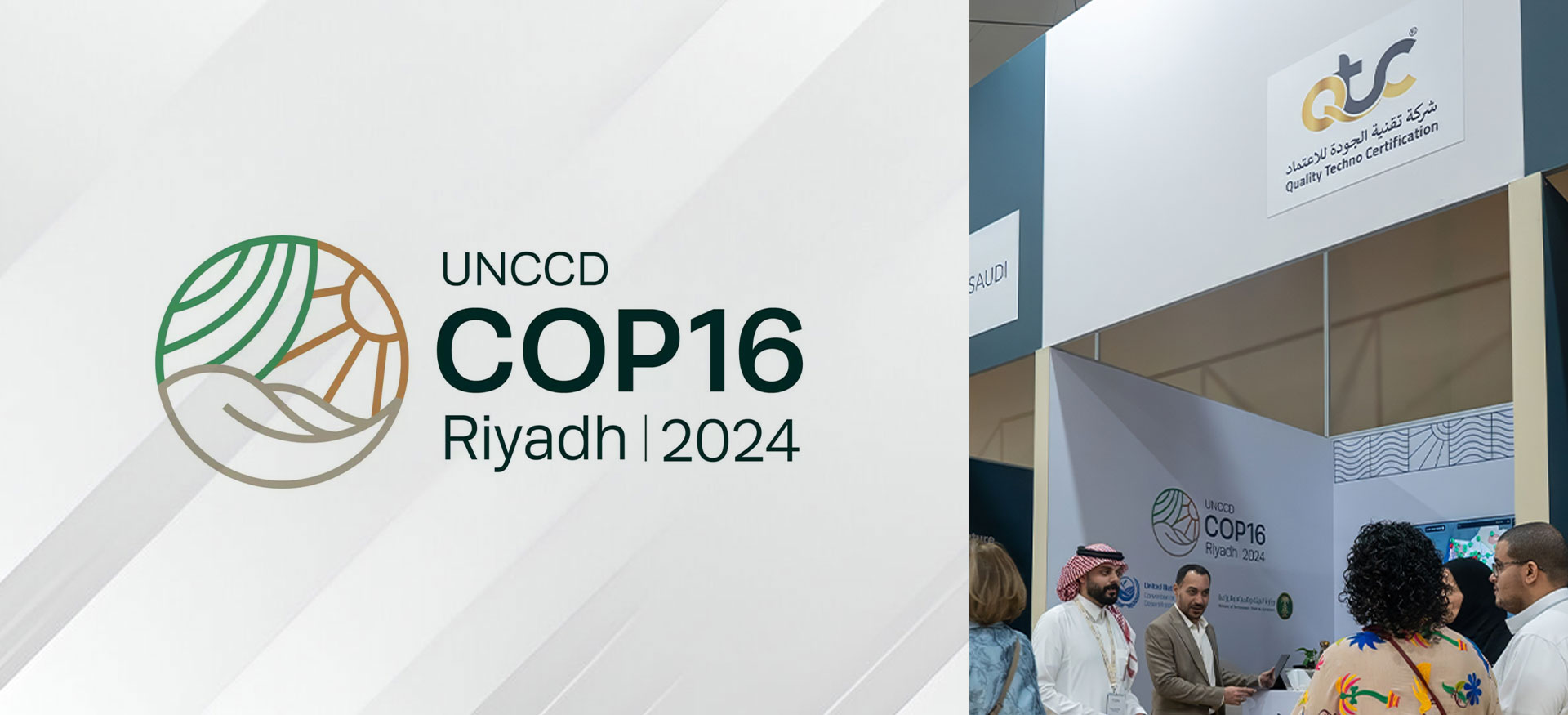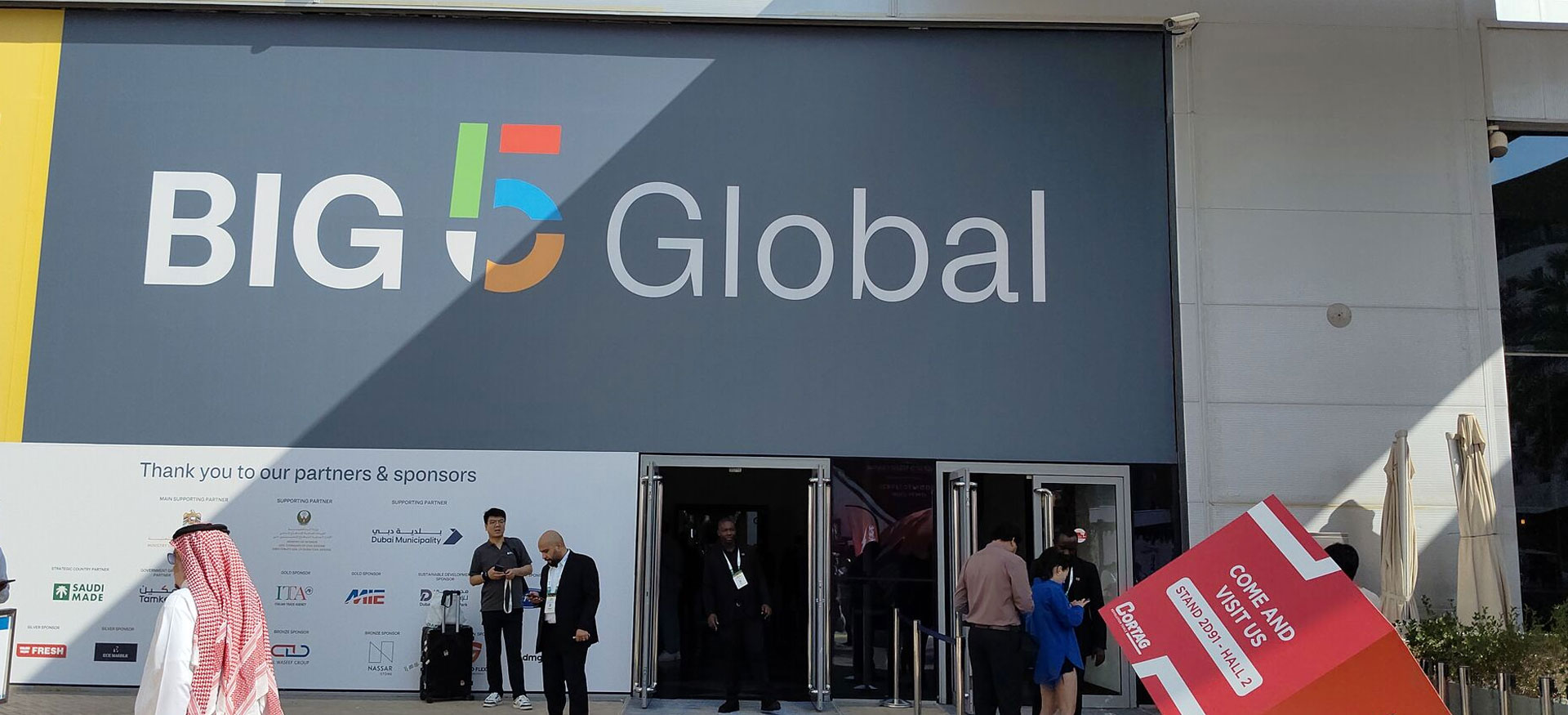Head of carbon management dept. at QTC gives a lecture at COP16 in Riyadh
Head of carbon management dept. at QTC gives a lecture at COP16 in Riyadh
Head of carbon management department at QTC Eng. Anood Reemallah, a distinguished Saudi expert in carbon management, emissions accounting, and climate change, delivered a groundbreaking lecture at the 16th Conference of the Parties (COP16) held in Riyadh. Her session highlighted the critical role of the carbon footprint as an environmental assessment tool in supporting afforestation and land restoration projects, offering practical insights into how this tool can help achieve sustainability and carbon neutrality goals.
With a Bachelor’s degree in Environmental Science from the University of North Texas and certification as a Lead GHG Auditor (ISO 14064) accredited by KBS Certification Services, Eng. Anood combines academic rigor with extensive professional experience. Her contributions to climate change mitigation and sustainability align closely with Saudi Arabia’s Vision 2030, positioning her as a leading figure in the field.
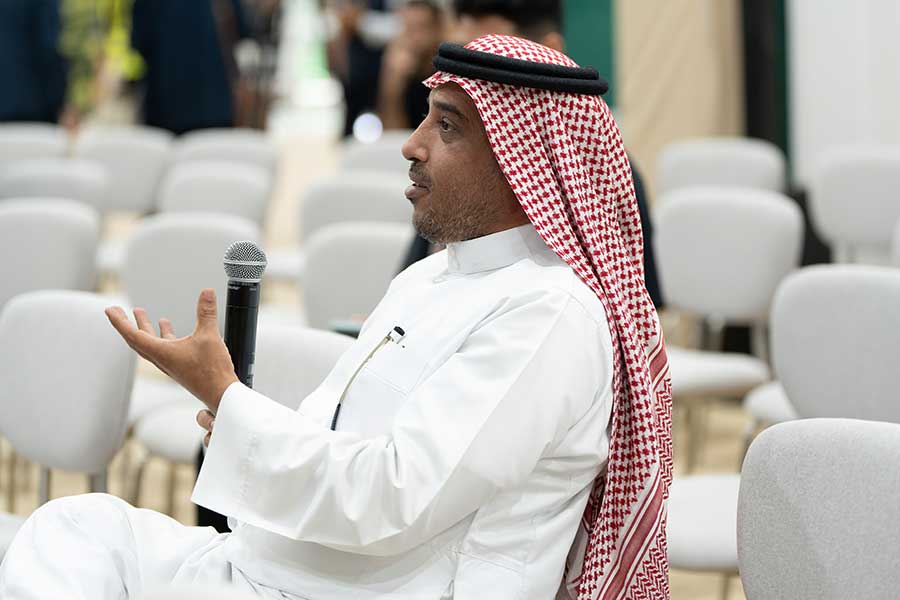
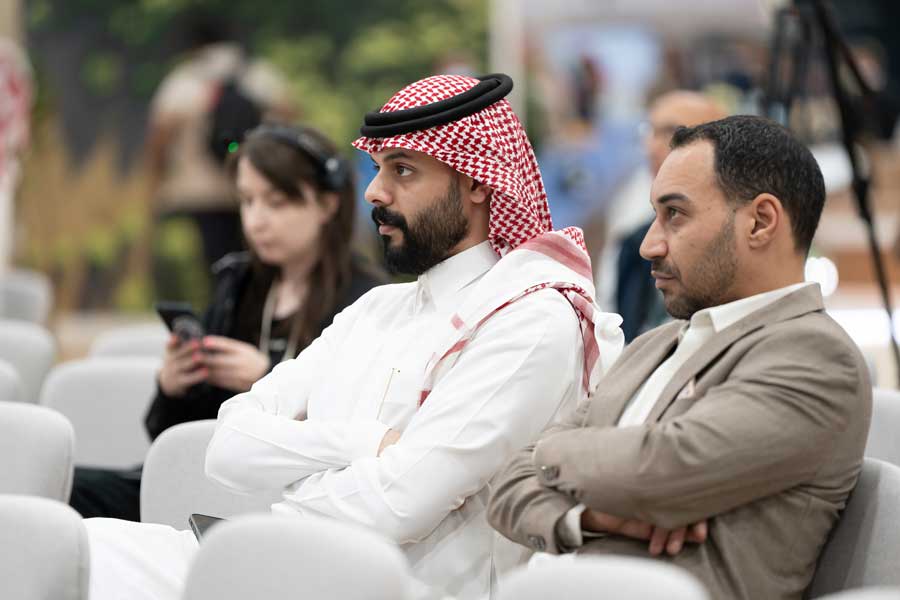
Understanding Climate Change and the Role of the Carbon Footprint
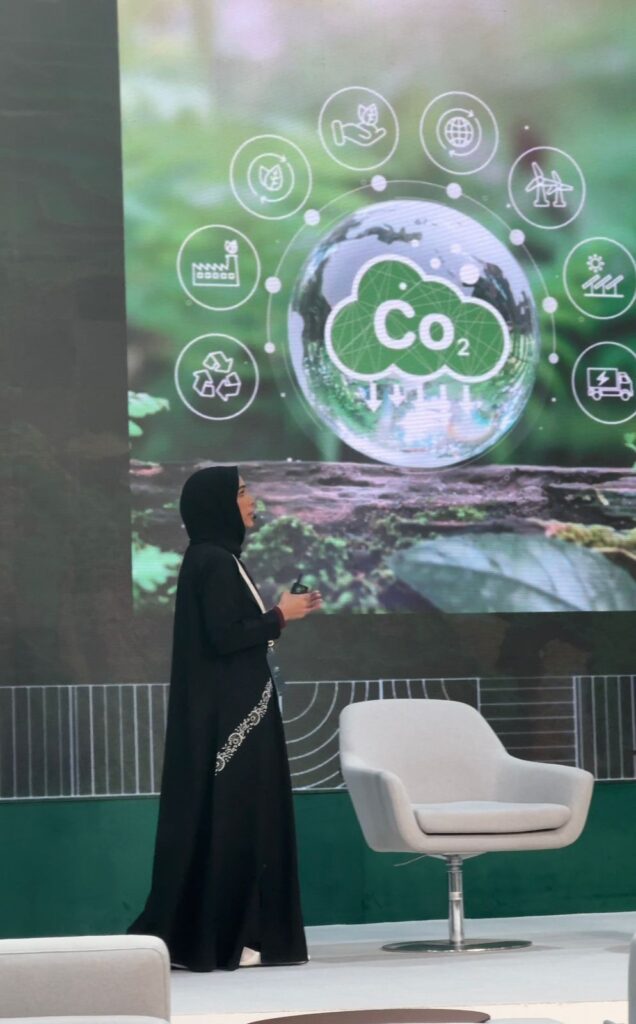
In her lecture, Eng. Anood emphasized the urgent need to address climate change, which disrupts weather patterns, escalates extreme weather events, and threatens global food and water security. She explained the carbon footprint’s significance in quantifying greenhouse gas emissions from human activities, making it a powerful tool to assess environmental impact and guide decision-making.
Why the Carbon Footprint Matters
Eng. Anood outlined the benefits of using the carbon footprint in environmental assessments:
Identifying Emission Sources: The tool helps pinpoint major emission sources across sectors such as energy, agriculture, and transportation.
Monitoring Progress: It enables the tracking of progress toward environmental goals, including combating desertification and enhancing the use of renewable energy.
Empowering Sustainable Practices: The carbon footprint fosters awareness and inspires individuals and organizations to adopt low-carbon alternatives and sustainable practices.
Saudi Arabia’s Pioneering Initiatives
Eng. Anood highlighted examples of Saudi Arabia’s commitment to sustainability, such as:
- The Sakaka Solar Plant: Reducing reliance on fossil fuels while expanding renewable energy capacity.
- The Riyadh Sports Boulevard: A project designed to enhance urban sustainability by reducing emissions and promoting green spaces.
By applying the carbon footprint as an assessment tool, these projects can accurately measure their environmental impact and quantify avoided or reduced emissions, further solidifying their alignment with Vision 2030.
Mission and Aspiration: Raising Awareness for a Sustainable Future
Eng. Anood’s mission is to raise societal awareness about the carbon footprint as a vital environmental tool. She believes that fostering an understanding of greenhouse gas emissions is key to inspiring sustainable solutions. Through education and engagement, individuals and organizations can contribute to achieving Saudi Arabia’s climate goals and create a more conscious, sustainable community.
Key Takeaway
“Measuring the carbon footprint is not just about numbers,” said Eng. Anood. “It’s an effective way to understand the environmental impact of our actions and drive real change. Raising awareness about it contributes to building more sustainable communities and achieving carbon neutrality, leaving a positive legacy for future generations.”

